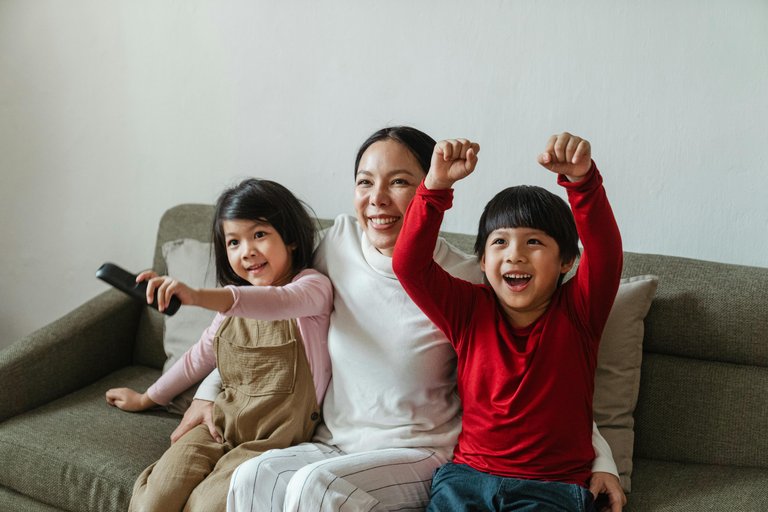Protecting Young Minds
Greetings!

When it comes to censorship of content that children watch, I believe that both parties—the platform owners and the parents or guardians—should be responsible. Technology and the world at large have advanced to a point where almost everything is accessible to everyone. Additionally, technology has, in many situations, implemented features that allow certain content to be restricted from children, with these features fully controlled by parents. However, some platforms do not offer such features, allowing everything to be seen by anyone, and this is not a concern for their owners.
Even as an adult, there are things that I find so irritating that I block a person or page without hesitation. For example, two weeks ago, I came across a post on Facebook by one of my friends who is gradually moving into content creation, driven by the new open earning opportunities introduced in Nigeria. The post portrayed a dead body with cotton wool in the nose and ears, and the face was swollen, clearly depicting a dead person. This was not the first time I had seen such a post; in fact, he posted it almost every week. But that week, I found it so disturbing that I decided to remove him from my friend list. Am I scared of death? No! The photo was disgusting.
What am I insinuating here? It's not just sexual content that should be restricted from children, as many people tend to focus on. There are also horrific scenes that pose more danger to a child's well-being than sexual content. This is why parents have a significant role in monitoring and preventing their children from watching certain things, as these can be highly traumatizing.
I know someone who usually asks me to download cartoons for his children, which I then add to a drive for them to watch on their iPad. Every time I make these downloads, he provides a list of specific cartoons and anime to download, he doesn't allow me to download anything. Also, whenever we want to watch movies in the evening and the children are still around, the TV is always set to a cartoon channel. I must admit, I used to dislike this family for that because I never saw them watching anything other than cartoon channels.

In some modern satellite television providers, such as DStv, there are now features that allow parents to lock certain channels, making them inaccessible to children. Only the parents have the password, and with this, even if the children are left at home with the TV, they can't access those channels no matter how hard they try. In this case, the company has fulfilled its role by implementing this feature, and it's up to the parents to make use of it since it's usually optional. So, in such situations, I believe it's a balanced approach.
The situation that I think is almost impossible to control is children with smartphones. While there may be ways to restrict access to certain sites, how many sites can such a feature realistically control? This is the problem. Since children can't be completely controlled, we can't say they shouldn't use smartphones either. I think the best way to handle this is to give children proper lessons on what to avoid and possibly instill a sense of caution in them.
Thanks for reading.
I agree with you, giving children proper lessons will help a lot.
Thank you Ajay always 🙌
Sending Love and Ecency Vote!

Many thanks 🙌
!MEME
Posted using MemeHive
Credit: epic-fail
Earn Crypto for your Memes @ HiveMe.me!
That friend of yours reminds me of a guy I also blocked on WhatsApp. This guy was always posting sad things and always talking about haters and how he couldn't count on his friends. Yet, when you ask him what's up, he'll say it's all cruise.
He just seemed to enjoy posting such things and I found them disturbing. Memes are for cruise, not topics that genuinely cause people heart aches.🤧
Asweeeaar!
I don't hesitate to take off people in my life. I can't trade my sanity for anything abeg